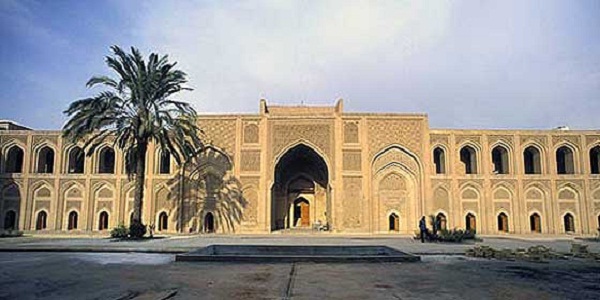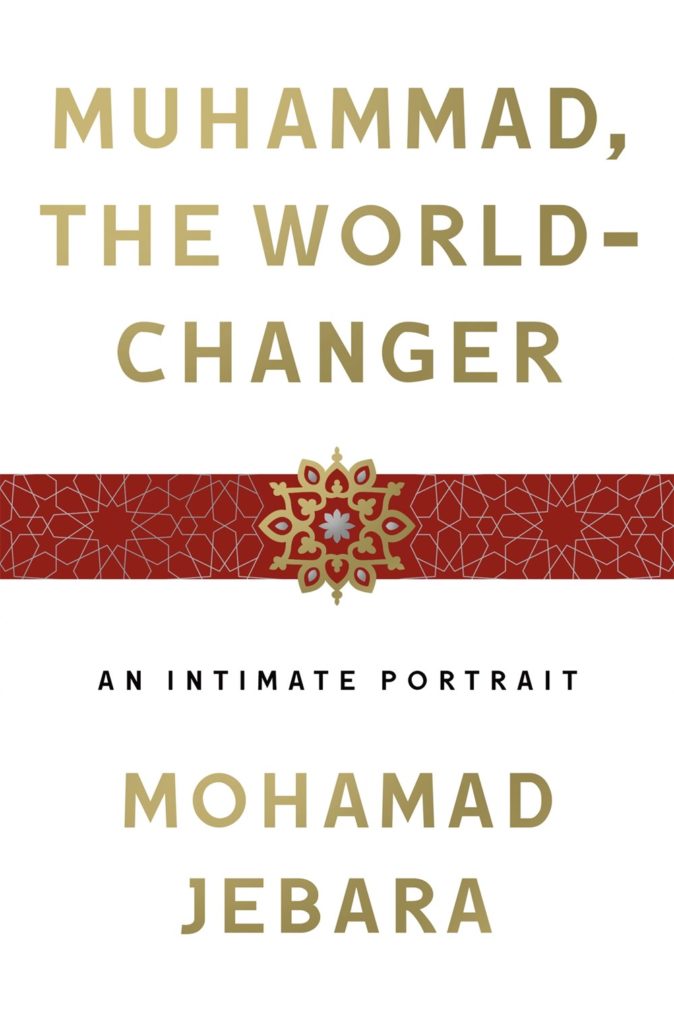In MUHAMMAD, THE WORLD CHANGER: An Intimate Portrait, author Mohamad Jebara places Islam’s founding prophet’s life in a broader historical context, vividly evoking the Meccan society he was born into and arguing that his innovative vision helped shape our modern world.
Today, he joins us to share more about Muhammad’s connection to libraries!
Libraries in the Islamic World
It is said that when Baghdad was sacked in 1258 CE, millions of Arabic books were destroyed. Hence it may come as a surprise that in 632 CE, the Qur`an made history by being the first book ever composed in the Arabic language. How did such a linguistic blossoming come about in a time span of six centuries a relatively brief period in relation to the development of written languages?
The story of world-renowned Islamic libraries traces its origins to Saturday March 14th 610 CE, when Ali Muhammad’s first scribe made history by transcribing the first words of the Qur`an, storing them in a wooden trunk that served as a makeshift library. Over the next 22 years, more scrolls would be added to ultimately compose the first manuscript of the Qur`an.
Since the Arabs were primarily an illiterate people and had no books, the Qur`an needed to lay out a methodology for writing Arabic books. This process would be accelerated with the founding of the first Islamic university town of Kufah, some 12 miles from the ancient Talmudic center of Sura in Southern Mesopotamia.
Ali, who made history by transcribing the first words of the first ever Arabic book, was charged with overseeing the project. At Kufah, Ali managed teams of scholars, guided by Jewish Talmudic scribes, to begin documenting the history, language and culture of Arabia, in a means to preserve the context in which the Qur`an was revealed. In the process, Ali established the first public library at Kufah.
When Caliph Al-Mansur established Baghdad as the capital of the Islamic empire, the original collection had swelled to several thousand books, which were moved as well. This collection was ultimately consolidated into what became known as the House of Wisdom, built under the auspices of the Caliph’s great grandson Al-Mamun and his stepmother, Zubaidah (d. 831), the main sponsor and driving force of the project.
The Qur`an speaks widely about books (kutub), scrolls (asfar), manuscripts (suhuf), tablets (alwah), paper/papyrus book (qirtas), inkwell (nun), pens (aqlam) and ink (midad).
The only thing the Qur`an asks its readers to request is “increase me in deep learning.” Likewise, it esteems the Jews and Christians as “ahl-ul-kitab” (literally people of the book or people of literacy and learning), contrasting them with the illiterate pagans of Arabia.
When Muhammad won his first battle, he offered prisoners of war freedom in exchange for teaching his followers how to read. The Qur`an holds reading in high regard, encouraging all to “read your book” and “ask those who read” and “read as much as you can.”
Muhammad taught that “scholars and students of knowledge are far better than the pious who devote themselves to prayer, while lacking learning.”
Muhammad considered literacy a right of the child, and the responsibility of parents.
The early emphasis on reading, literacy, and written works, found in the Qur`an and teachings of Muhammad, continued throughout the Islamic golden age (800-1200 CE). At this time books were worth their weight in gold and people competed to establish larger book collections and prestige was based on the number of books one had read and committed to memory.

Libraries were foundational in Islamic circles and most mosques had libraries. From 800-1100 CE, women were credited with establishing over 35% of libraries in the Islamic world. When Fatimah Ibnatul Fihri established the oldest university in 859 in Fez, Morocco, she launched its library by donating of her private collection, consisting of thousands of priceless manuscripts and books in various languages including Hebrew, Greek and Latin. This patroness was one of many. For example, Lubna of Cordova was renowned as a master librarian and acquisition expert, who gathered a collection of over 500,000 books. She then teamed up with Jewish scholar Hasdai Ibn Shaprut to establish the famed library at Medinat Az-Zahra. Similarly, Razia of Delhi established several libraries during her relatively short reign (1236-1240). Whereas Arwa As-Sulaihi, ruler of Yemen 1067-1138, is credited with establishing most of Yemen’s public libraries.
Although the golden age of Islam has faded in history, with many of its stupendous libraries falling under the pillaging sword of marauding hoards, the importance of the written word remains within Muslim cultures as evidenced by the veneration shown to the Qur`an. In fact, this one book remains central to all Muslim homes, and even among the illiterate, a copy of the Qur`an can always be found!
Mohamad Jebara
MUHAMMAD, THE WORLD CHANGER: An Intimate Portrait by Mohamad Jebara is available now from St. Martin’s Essentials.

